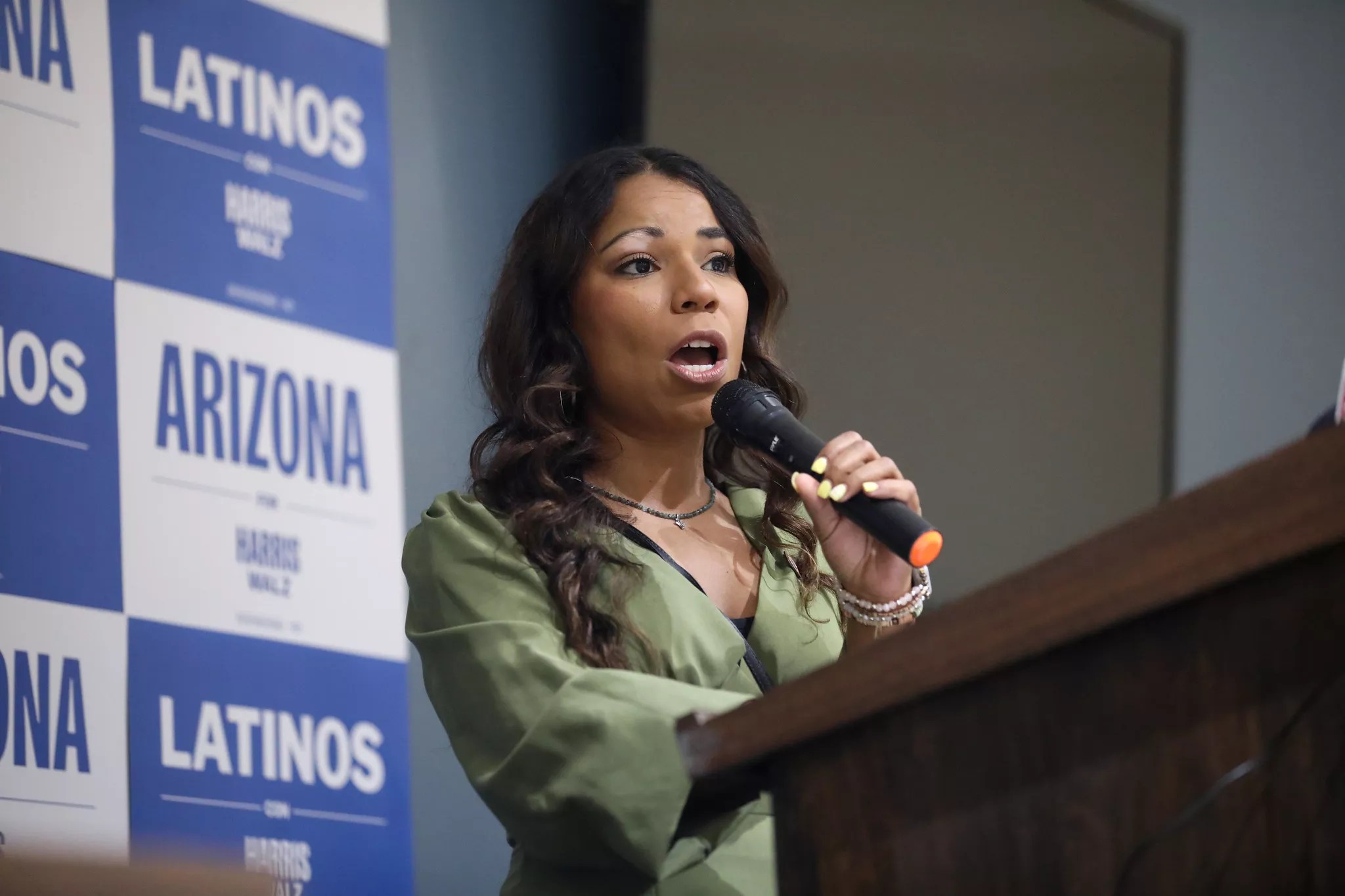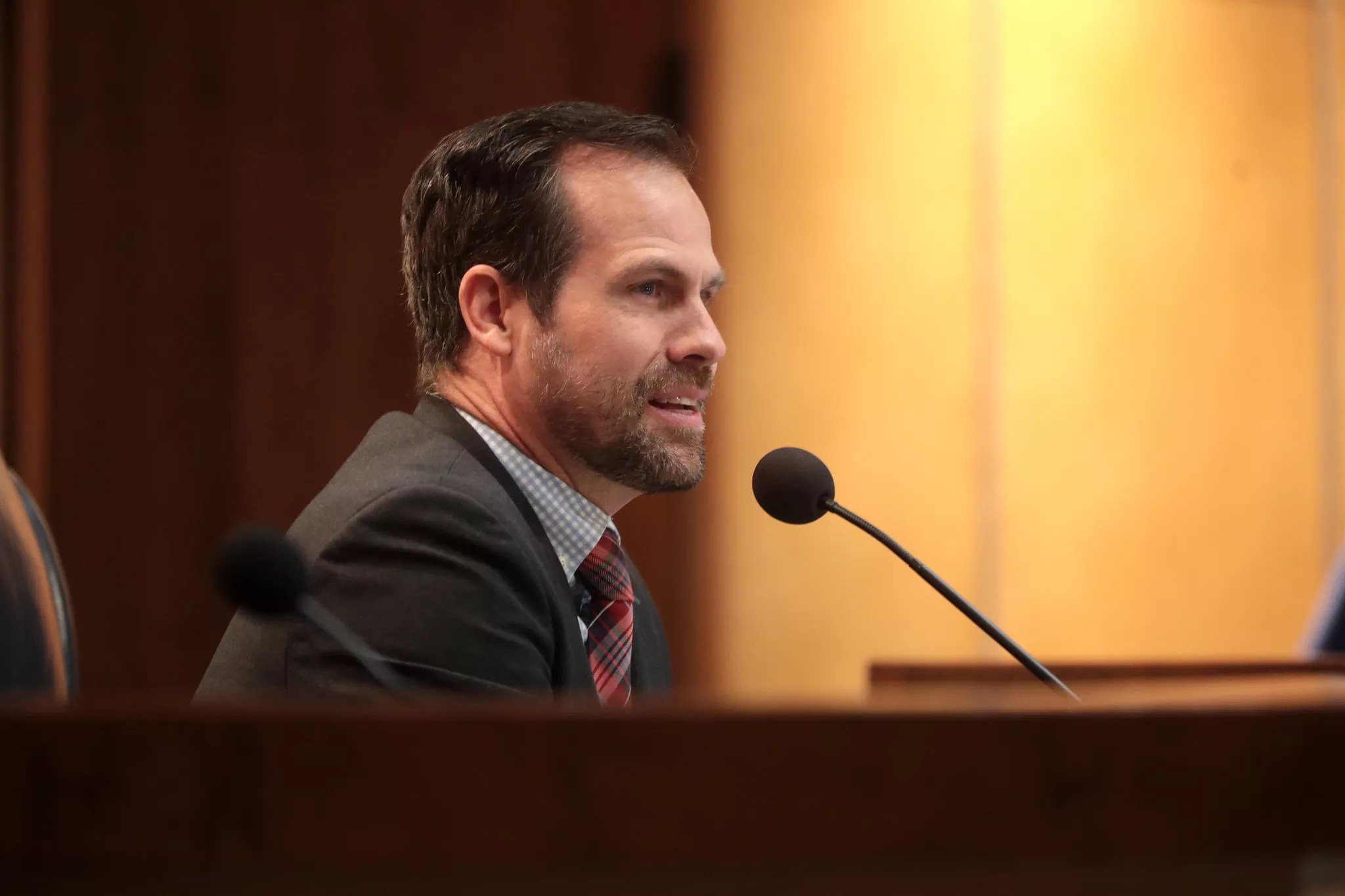
Gage Skidmore/Flickr/CC BY-SA 2.0

Audio By Carbonatix
If you see immigration agents in your community and post about it online, beware: One of the Republicans running to be Arizona’s top law enforcement officer thinks you should be prosecuted.
In a dramatic escalation of partisan tensions, Arizona Senate President Warren Petersen announced Tuesday that he’d asked federal authorities to investigate Democratic state Sen. Analise Ortiz. What was Ortiz’s alleged crime?
Posting an alert about an Immigration and Customs Enforcement sighting on her Instagram story.
“I spoke with the U.S. Attorney for the District of Arizona and referred this matter to his office to investigate,” Petersen wrote in a press release, “as it appears she may be in violation of federal law.”
Petersen did not specify what law Ortiz allegedly broke in his statement, nor did he respond to questions from Phoenix New Times. Posting about the public activity of law enforcement agents is perfectly legal.
In a statement to New Times, Esther Winne, the executive assistant U.S. Attorney for the District of Arizona, said the office is “aware” of Petersen’s “request” and will “refer the matter to the proper investigative agency for review, if appropriate.” Due to Department of Justice policy, the office does not “confirm to deny the existence of an investigation,” Winne wrote.
In a text to New Times, Ortiz called bullshit on Petersen’s maneuver. “These intimidation tactics will not scare me,” she wrote, adding that she will continue to alert the community “to avoid the area when Trump’s masked thugs are out terrorizing everyone.”
“The First Amendment guarantees my right to free speech,” Ortiz added.
Ortiz’s tweet appears to have come to Petersen’s attention thanks to the far-right troll account Libs of TikTok. The account shared a screenshot of Ortiz’s Instagram story, which included a post from the Phoenix Rapid Response account about an ICE sighting. The account claimed Ortiz was “actively impeding and doxxing ICE by posting their live locations” – the agents were in public and not named, and therefore not “doxxed” – and demanded that authorities “charge her.”
Ortiz responded defiantly.
“Yep,” Ortiz wrote to the Libs of TikTok tweet. “When ICE is around, I will alert my community to stay out of the area, and I’m not fucking scared of you nor Trump’s masked goons.”
Petersen seems to have taken the Libs of TikTok tweet as a marching order, though. Roughly two hours later, Petersen issued his press release, calling Ortiz’s comments “deeply troubling” and revealing that he referred the matter to the U.S. Attorney’s Office.
His eagerness to sic prosecutors on an opposing lawmaker is especially notable considering that Petersen is running for state attorney general in 2026. As attorney general, he could initiate the type of investigations that he’s currently requesting be performed on Ortiz.

Arizona Senate President Warren Petersen, who is running for attorney general in 2026, seems particularly eager to use prosecutorial power to chill free speech.
Gage Skidmore/Flickr/CC BY-SA 2.0
First Amendment much?
Unsurprisingly, Petersen’s announcement caught the eye of the state’s current attorney general, Democrat Kris Mayes. In a social media post, Mayes lambasted Petersen for “using his position” to “threaten and intimidate” Ortiz for protected speech.
“I know he’s only been a lawyer for a year and a half,” Mayes wrote, “but he needs a (Continuing Legal Education) on the Bill of Rights.”
Petersen was only admitted to the State Bar of Arizona in December 2023 after obtaining his law degree from Arizona State University’s Sandra Day O’Connor College of Law. Gregg Leslie, the executive director of the law school’s renowned First Amendment Clinic, said the law is clearly on Ortiz’s side.
Leslie told New Times that the right to free speech means “you certainly should be able” to share information about what you see in your community “without getting in trouble.” Leslie noted that Ortiz isn’t sharing information she received directly from ICE. “As citizens, we don’t have an obligation to keep government secrets when we’re not getting something for it in exchange” like security clearance, Leslie explained. Nor should people be charged with “aiding and abetting or interfering with police activity” or any other “arrestable offense if you’re just telling other people what you see without an obligation to keep something secretive,” Leslie added.
Borderlands Resource Initiative and other groups that post the ICE alerts certainly don’t get their information from government sources. Instead, the Phoenix Rapid Response Instagram account works by sharing what community members see in the open.
Last month, Borderlands executive director Beth Strano told New Times that the account is a “community project” in collaboration with several local organizations, including Borderlands and Puente. If a community member sees ICE agents or vehicles, they can call the organization’s “Migra Watch” hotline to report it. A volunteer on the other end of the line will attempt to verify the sighting. If verified, the Phoenix Rapid Response account will post the alert online about five minutes after receiving the call.
Those posts are commonly shared by community organizers, leaders and even elected officials like Ortiz, who compared the information-sharing to apps like Waze and Citizen that alert people to speed traps.
“Every individual has the right to know when and where to protect themselves,” Ortiz said.